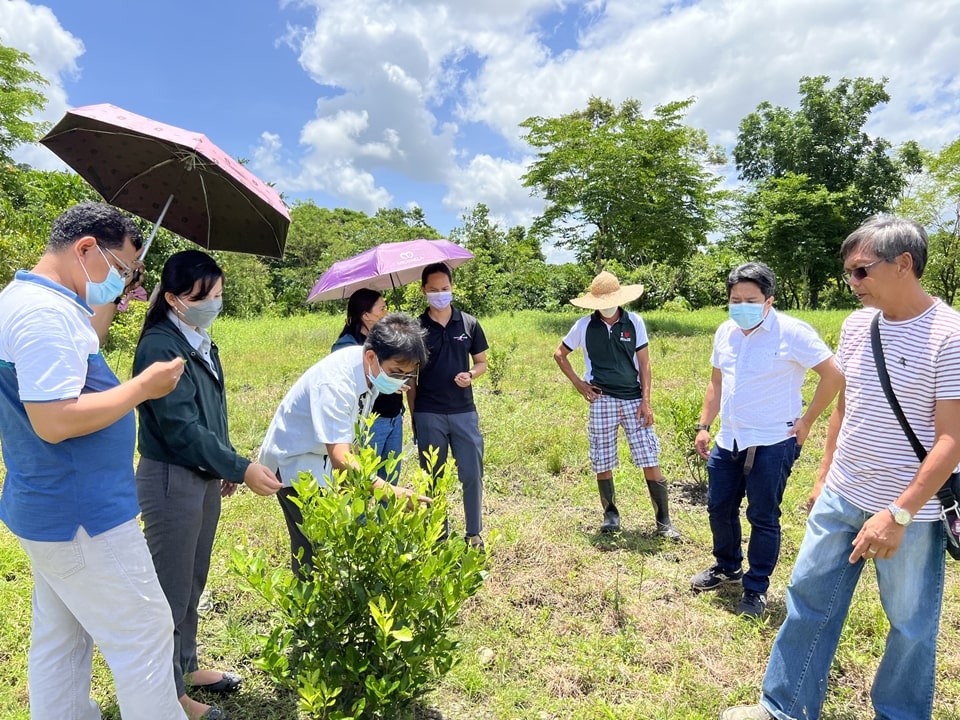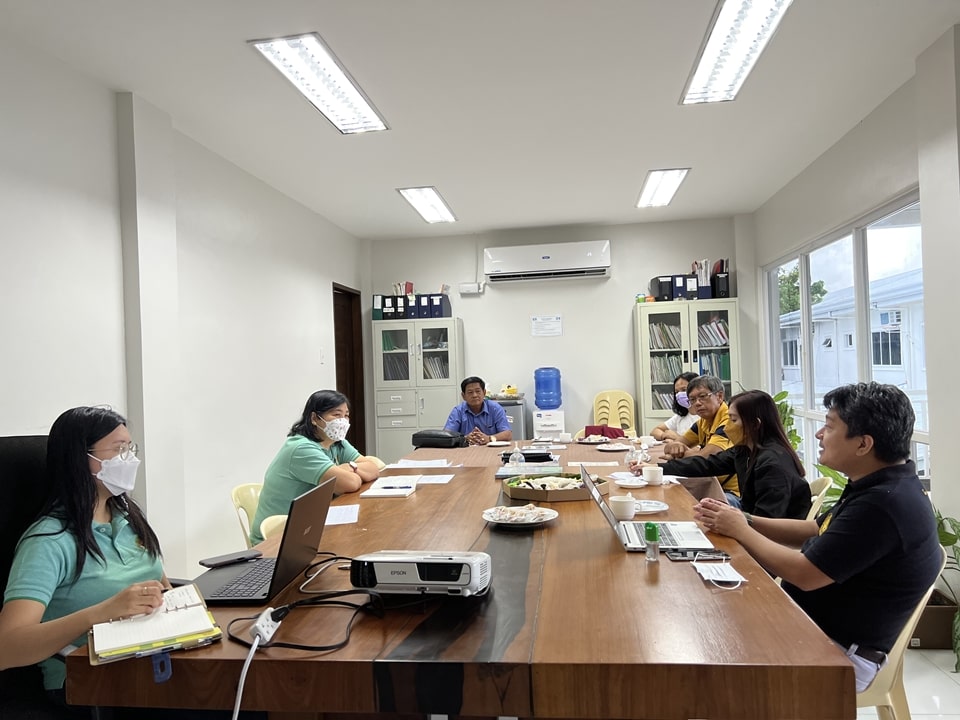ORIENTAL MINDORO, Philippines – In May 2021, a virtual signing of the Letter of Agreement (LoA) between the Southeast Asian Regional Center for Graduate Study and Research in Agriculture (SEARCA) and the Mindoro State University (MinSU) was done on the establishment of the techno-demo-learning site for calamansi research. This undertaking took off from the gains of the SEARCA and the Department of Agriculture – Bureau of Agricultural Research (DA-BAR)-funded project, “Upgrading the Calamansi Value Chain towards Improving the Calamansi Industry of Oriental Mindoro.” The learning site was situated at MinSU’s Calamansi Research and Development Center.
A year after the signing of LoA, the SEARCA team met with MinSU to discuss the initial results of the management, monitoring, and evaluation of the techno-demo-learning site on 4 April 2022. The team was composed of Dr. Pedcris M. Orencio, Program Head; Ms. Anna Gale C. Vallez, Program Specialist; Ms. Donna Bae N. Malayang, Program Associate, all of SEARCA’s Research and Thought Leadership Department (RTLD); and Prof. Bryan V. Apacionado, the project’s Technical IEC Developer from the University of the Philippines Los Banos (UPLB). The information, communication, and education (IEC) material that will be produced will serve as a guiding technical document for students and researchers from various institutions and groups, government agencies, and farmer organizations on good agricultural practices (GAP) and protocols for calamansi production.
On the other hand, MinSU representatives present in the meeting were, Dr. Christian B. Apostol, the project’s On-site Management and Monitoring and Evaluation focal person and has also served as the University’s Director for Production; Mr. Macario B. Masagca, Jr., Director for Research and Development; and Ms. Flordemae V. Ines, Instructor I. The SEARCA and MinSU were also joined by Mr. Ruel A. Sanchez, President of the Victoria Kalamansi Farmers Federation (VKFF).

The activities for that day set off with a visit to the techno-demo-learning site. Dr. Apostol headed the field establishment, data gathering, monitoring, as well as photo documentation following the protocol prepared by the team of experts from UPLB. The recommended protocols include good agricultural and management practices for calamansi production such as soil sampling and analysis, land preparation, fertilizer application, irrigation, and pruning.
Opportunities for further collaboration opened during meeting, e.g., the development of the calamansi sorter to reduce losses incurred during harvesting and the biodigester to reduce the wastes (calamansi peels and rind) incurred during processing and convert these to energy. The RTLD is currently coordinating these with SEARCA’s Emerging Innovations for Growth Department (EIGD) and other external partners.
The SEARCA team also scheduled a meeting with the partners from the Provincial Agriculture Office (PAgO) of Oriental Mindoro on 5 April 2022. Recognizing the potential of calamansi and the need to revitalize the industry, SEARCA partners with the PAgO in crafting the provincial calamansi roadmap and market study for processed calamansi products. Ms. Christine M. Pine shared the observed changes in the calamansi market landscape during the time of pandemic. Dr. Orencio highlighted the need to standardize the calamansi puree and eyed the development of essential oils. With this, the team agreed to have a consultative workshop to have an overview of the calamansi landscape in the province. The expected participants are the different agencies involved in calamansi production, processing, and marketing.
